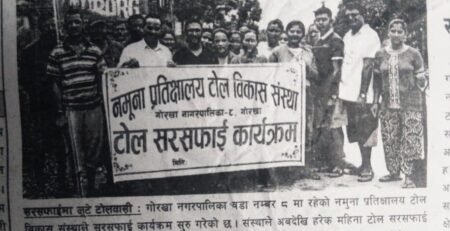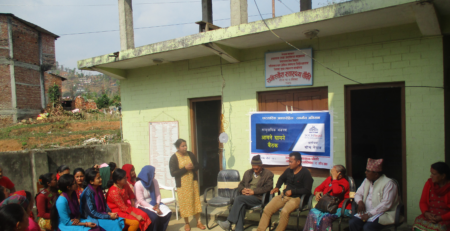SOCH YOUTH WINTER CAMP

SOCH Youth organised a two-day winter camp for young people studying in Kathmandu Valley on the 8th and 9th of February 2016. The camp was held in Chitlang, Makwanpur at Goat Cheese Home stay. There were 51 participants and 10 team leaders on the camp. The team leaders were from SOCH Youth and SOCH Nepal. SOCH Youth Vice President and secretary, Mr Kiran Khatri and Miss Sanjina Rai facilitated the two- day program that included games, activities and presentations from various speakers.
The SOCH Youth team and all camp participants were welcomed to the Goat Cheese Home stay with big smiles and a delicious lunch. Following lunch the owner of the home stay, Mr Ashok Kumari Sing Thakuri kindly gave his time to welcome us officially and to share some of his personal life experiences. He explained how travelling to various parts of the world allowed him to recognise his love and passion for Nepal and how this passion encouraged him to create his own business in producing goats cheese. Mr Thakuri explained that he wanted all Nepali people to have equal financial opportunities and expressed his desire to share his business ideas and knowledge with other Nepali people. At the conclusion of his talk, he encouraged the youth at the camp to consider what they can achieve in Nepal through creativity and passion.
Mr Khatri officially opened the SOCH Youth winter camp by welcoming all SOCH Youth members, SOCH Nepal members and participants of the camp. Mr Khatri discussed the importance of personal development, leadership and teamwork and highlighted the opportunities that the winter youth camp offered for participants to develop skills in these areas. As part of this initial session, participants were divided into random groups and these groups were the basis for all games and activities during the camp. The activity required each group to create a unique name and slogan that would consistently identify them as a group during the camp and would be there group during games and activities. The groups were immediately excited to work together and showed incredible patience and understanding from this first activity. A number of participants expressed the highlight of the camp to be the unity of the group and teamwork involved on the camp as per the feedback form.
Many of the games on the first day involved teamwork and encouraged participants to continue developing skills in communication and understanding through kindness and respect. Team leaders observed all participants supporting each other and motivating people from all teams. Participants also expressed the games to be a highlight of the camp. One participant stated that,
“The best part of the camp was the games, by the games we learned different things like helping the families, coordinating, making the team better, how to lead the team and how to co-operate”.
It was wonderful to see all participants demonstrate enthusiasm and enjoyment during all activities.
Executive Director of SOCH Nepal, Mr. Uttam Niraula gave a presentation on the absolute importance of recognising the strengths and uniqueness of every person rather than identifying individuals based on categories such as caste or religion. Mr Niraula encouraged participants to consider the diverse ideas in Nepali culture and western culture in regards to family, religion and worship of various God’s. He focused his presentation on being open to different societies as key of personal development. He also discussed the structure of society and Nepali culture and how this influences our personal development. Many participants were taking notes and all were listening intently as Mr. Niraula presented insightful information. He Explain every human beings are different and they all are equal so that we should not judgemental. He also discussed about the acceptance and individuality.
SOCH Nepal team member, Emily Young led a session in regards to the pressures that youth face in Nepalese society. This session allowed discussion to occur between participants and provided an opportunity for them to express their feelings and thoughts on this topic. Many participants expressed concerns in regards to education opportunities, political structure, cultural belief systems, mult




Leave a Reply